Search the Special Collections and Archives Portal
Search Results
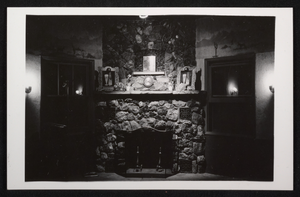
Postcard of a rock fireplave, circa mid 1900s
Date
1940 to 1970
Archival Collection
Description
Picture of a rock fireplace in a cabin. The location is unknown.
Image

Postcard of souvenirs, circa mid 1900s
Date
1940 to 1970
Archival Collection
Description
Picture of souvenirs of the West on a postcard.
Image
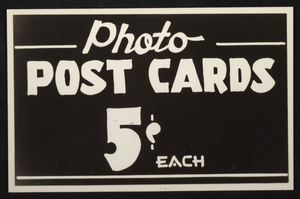
Postcard of an advertisement for postcards, circa mid 1900s
Date
1940 to 1970
Archival Collection
Description
Picture of a postcard advertisement.
Image
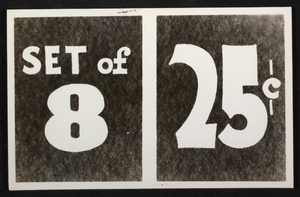
Postcard of an advertisement for postcards, circa mid 1900s
Date
1940 to 1970
Archival Collection
Description
Picture of a postcard advertisement.
Image

Postcard of an advertisement for postcards, circa mid 1900s
Date
1940 to 1970
Archival Collection
Description
Picture of a postcard advertisement.
Image
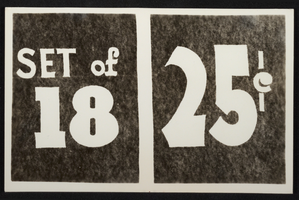
Postcard of an advertisement for postcards, circa mid 1900s
Date
1940 to 1970
Archival Collection
Description
Picture of a postcard advertisement.
Image
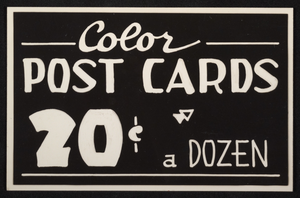
Postcard of an advertisement for postcards, circa mid 1900s
Date
1940 to 1970
Archival Collection
Description
Picture of a postcard advertisement.
Image
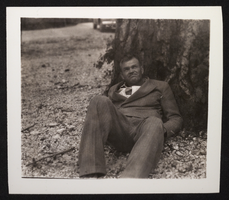
Photograph of a man, circa 1930s-1950s
Date
1930 to 1959
Archival Collection
Description
An image of a man in a suit lying against a tree trunk.
Image

Governor's Mansion, Tallahassee, Florida: panoramic photograph
Date
1982-05-03 to 1982-05-05
Archival Collection
Description
From the Bob Paluzzi Panoramic Photographs
Image
Pagination
Refine my results
Content Type
Creator or Contributor
Subject
Archival Collection
Digital Project
Resource Type
Year
Material Type
Place
Language
Records Classification

